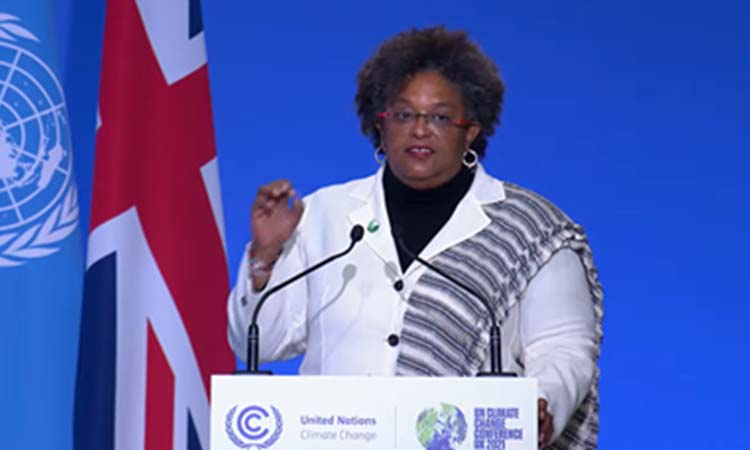The COP26 Leader’s Event: Action and Solidarity – The Critical Decade which was held in Glasgow today as part of the World Leaders’ Summit was an inconsequential and only vaguely interesting watch.
Chaired by the UK Prime Minister, the session began with Boris Johnson admitting that richer nations had “flunked” the promise made in Paris to raise an annual US$100 billion in climate finance by 2020. Although many leaders of other developed countries also acknowledged this failing in their two minutes of allotted speaking time, it was notable that none of them apologised. Instead, many took a “better late than never” approach to funding those on the frontline of climate change: clearly forgetting that ‘late’ is relative and, for those that are already living with the impacts of climate change, we are already well past ‘late’.
On the other hand, the leaders of developing countries managed to withhold their eye rolls as they listened (for the 26th time) to the self-congratulation of their peers. Prime Minister Andrew Holness of Jamaica reminded other leaders that small island nations are already under threat from 1˚C of warming and described how they “brace [themselves] for natural disasters”. It must be very draining to come back year after year to argue the case for your country’s very existence especially when other countries don’t keep their promises of support. In the UNFCCC documents the pre-2020 era is often associated with trust-building between nations. It seems unlikely that trust can truly be built with countries whose leaders freely admit that “when it comes to tackling climate change, words – blah blah blah – without action, without deeds are absolutely pointless, and our record on deeds so far is not exactly stellar”.
Immediately following the Jamaican PM, President Carlos Alvarado Quesada of Costa Rica told the story of his son’s fear of climate change and asked that countries up their contributions because whatever they are “it’s not enough”. The most striking part of President Carlos Alvarado Quesada speech was not his son’s fear, nor was it the simplicity with which he summarised the job of the world leaders at COP26 – “Not to fail.” – it was that, of all the leaders, he was the first to point out that the people in the room had the ability to make change happen. Many other leaders spoke as if they were activists trying to convince a global overlord to take action and hadn’t realised that they, themselves, were some of the most powerful people on the planet.
The only other person to speak like this was the Sudanese activist Nisreen Elsaim, Chair of the UN Secretary General’s Youth Advisory Group on Climate Change, Climate and Security. Despite only being appointed in August 2020, Nisreen Elsaim was clearly one of the most impressive leaders in the room. She represented 15- to 29-year-olds, noting that when you’re talking about such a large percentage of the population (47%) it’s not a privilege to listen to them: it’s an obligation. It was hard not to listen to her. Her speech was amusing, inciteful, confident, and persuasive, and her joking threat to delete selfies with the leaders if they disappointed her is sure to have scared many of the world leaders who treat COP like a fortnight-long photo opportunity.
This session followed the Opening of the World Leaders’ Summit in which Prime Minister Mia Mottley of Barbados gave a passionate speech calling for the leaders of today “to try harder”. That the leaders of developed countries could listen to her speech, where she told them that for small island nations “1.5 is what we need to survive, 2 degrees is a death sentence”, and then spend most of their speeches listing the insufficient actions they’ve taken to reduce emissions (whilst ignoring the many actions they’ve taken to increase them) is a worrying sign of a lack of character and compassion.
I woke up today feeling positive about the success of COP26 but, one day in, I’m not so sure. Every other speech had a new and unnecessary metaphor to describe the urgency of the climate emergency but no sense of urgency in the climate action they proposed. The New Scientist had a headline this evening: ‘Today at COP26: World leaders give dire warnings.’ Except we don’t need leaders to give dire warnings. Scientists and activists have been doing that for decades with the most extreme coming earlier this year in the Sixth IPCCC Assessment Report. We need world leaders to lead, to act, and – most importantly – to keep the promises they make at COP26.
Written by Gywneth Matthews, COPCAS PhD Student


